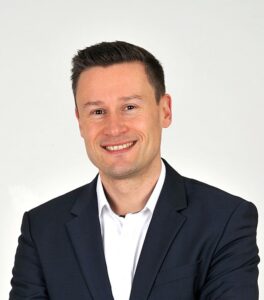While exact estimates are hard to determine, market analysts agree with the fact that spare parts manufacturing is a multi-billion-dollar industry – given the fact that it spans different vertical industries, some of them being crucial to the growth of Additive Manufacturing.
When one looks at the capital cost required to carry inventory, the administrative and insurance burdens related to that inventory, the “stock risk cost” or even the transportation costs, the idea of no longer storing any physical parts and producing them only where and when required rapidly becomes attractive.
If AM can be a great enabler of a digital inventory, one should remain cautious about its ability to address the supply chain challenges of a given industry. Indeed, organizations that consider pivoting towards a spare parts business model should be able to make strategic decisions that are not limited to producing on demand with AM, at various locations.
The next Additive Talks session ambitions to go beyond the use of AM as an opportunity to focus on the strategic steps to consider in a successful AM spare parts business.
Entitled “How to ensure a pragmatic use of AM across the digital supply chain”, this second episode of Additive Talks, will take place on Wednesday, April 24th, from 03.30 pm to 04.30 pm Central European Time (from 9.30 am to 10.30 am New York Time).
Around this virtual panel, one will find :
 Stefanie Brickwede, Managing Director – Mobility goes Additive e.V. & Head of AM – DB Fahrzeuginstandhaltung GmbH.
Stefanie Brickwede, Managing Director – Mobility goes Additive e.V. & Head of AM – DB Fahrzeuginstandhaltung GmbH.
Stefanie Brickwede graduated from the TU Hanover as an economics major and started her career in the mobility sector. She held various management positions at the Deutsche Bahn AG – the national railway company of Germany – before taking over as Head of the corporate project 3D printing within the DB in 2015. As such she is responsible for the successful introduction of Additive Manufacturing throughout the DB group. Together with her team, she has already been able to provide 100,000 parts with over 500 different applications using more than a dozen different manufacturing technologies. This has prevented the unplanned standstill of vehicles and infrastructure and achieved effects in the high millions.
With this railway background came an understanding of the opportunities and challenges for AM users and Stefanie Brickwede passionately set up the international leading network “Mobility goes Additive” in 2016 with the aim of pushing industrial 3D printing into series production. With the „Medical goes Additive“-division launched in 2019 the focus of the network was widened to assist Hospitals, companies and institutions throughout the medical sector to extent the use of Additive Manufacturing. Now, MGA has more than 140 member companies active in close to 20 working and focus groups.
Laslty, Ms. Brickwede is the initiator of the “Women in AM” network and actively promotes women in the AM industry.
 Next to Ms. Brickwede, one will find AJ Strandquist who leads the Würth Additive Group (WAG) with a unique perspective forged on the shop floors and in the strategy rooms of the manufacturing world. With a deep-rooted belief in the power of Additive Manufacturing (AM) to solve real-world supply chain challenges, Strandquist has been pivotal in evolving Würth’s approach to industrial services through innovation and customer-centric solutions since 2017.
Next to Ms. Brickwede, one will find AJ Strandquist who leads the Würth Additive Group (WAG) with a unique perspective forged on the shop floors and in the strategy rooms of the manufacturing world. With a deep-rooted belief in the power of Additive Manufacturing (AM) to solve real-world supply chain challenges, Strandquist has been pivotal in evolving Würth’s approach to industrial services through innovation and customer-centric solutions since 2017.
AJ’s journey from the factory floor to CEO of WAG—a testament to his hands-on approach and commitment to practical problem-solving—exemplifies his belief in staying connected to the core of the business.
Würth is a globally recognized leader in the field of fastening and assembly materials, offering an extensive range of products that include screws, screw accessories, anchors, tools, and complex assembly units. Founded in 1945 by Adolf Würth in Künzelsau, Germany, the company has grown from a modest family enterprise into a worldwide conglomerate renowned for its commitment to quality, innovation, and unparalleled service.
With its roots firmly planted in the fastener industry, Würth has diversified its offerings to cater to a broad spectrum of sectors, such as the automotive, construction, and metalworking industries. The company prides itself on its deep industry knowledge and the ability to provide customized solutions that meet the unique needs of its customers.
Embracing the future, Würth has ventured into digital solutions and additive manufacturing, leading the charge in transforming traditional supply chains and manufacturing processes.
 Lastly, Christian Ochs, Head of Additive Manufacturing at Siemens Mobility, a leader in intelligent transport solutions for more than 175 years.
Lastly, Christian Ochs, Head of Additive Manufacturing at Siemens Mobility, a leader in intelligent transport solutions for more than 175 years.
Ochs leads Siemens Mobility’s Additive Business consisting of 14 locations worldwide for the development, design and production of railway serial and spare parts as well as production aids. Before joining Siemens, Ochs was working as Senior Manager for Robert Bosch GmbH leading the automotive small series production, Prototyping and Additive Manufacturing at the Nuremberg plant from 2017-2021.
From 2015-2017, he kicked-off and established a project to develop an AGV (Automated Guided Vehicle) for Bosch, which is already utilized worldwide by various industrial companies and can be purchased from Bosch Rexroth AG under the brand name ActiveShuttle.
After graduating from Industrial Engineering and Management from the Friedrich-Alexander-University Erlangen-Nuremberg (Germany), Ochs joined Robert Bosch’s prestigious International Leadership Program as first career step in 2010.
Siemens Mobility’s core areas include rolling stock, rail automation and electrification, a comprehensive software portfolio, turnkey systems as well as related services. With digital products and solutions, Siemens Mobility is enabling mobility operators worldwide to make infrastructure intelligent, increase value sustainably over the entire lifecycle, enhance passenger experience and guarantee availability. In fiscal year 2023, which ended on September 30, 2023, Siemens Mobility posted revenue of €10.5 billion and employed around 39,800 people worldwide.
Does this look like a discussion that you do not want to miss?


